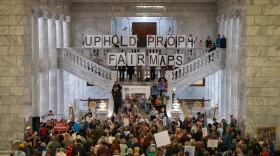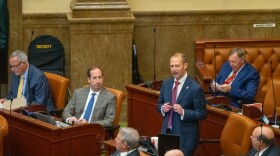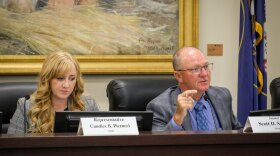-
One GOP lawmaker characterized a judge's ruling that redrew the state’s congressional map as a “gross miscarriage of justice.” The main point of the session was to buy time for an appeal to the Utah Supreme Court.
-
A repeal referendum driven by a wave of union signature gathering was set to be on the 2026 ballot, but lawmakers decided to just do away with the law for now.
-
GOP lawmakers want the Utah Supreme Court to overturn the new map before the 2026 midterms.
-
La Legislatura ha tomado una decisión sobre qué mapa quiere para representar los distritos congresionales de Utah. Ahora será enviado al juez Gibson como parte del proceso de redistribución de distritos ordenado por el tribunal en Utah.
-
Were the standards passed in the special session needed clarity or “a wolf in sheep's clothing?” Plaintiffs in the redistricting case immediately responded in court.
-
The Legislature has made its call on which map it wants to represent Utah’s congressional districts. It will now be sent to Judge Gibson as part of Utah’s court-ordered redistricting process.
-
The Legislature faces an Oct. 6 deadline to vote on a new congressional map in Utah’s court-ordered redistricting.
-
There are four different kinds of special sessions in Utah. The governor says he will call for one in May, but lawmakers may also be considering their own sessions as well.
-
The governor continues to plead with lawmakers to pass fewer bills to ease the burden on school administrators and municipal workers of implementing new laws.
-
Even though Amendment D will remain on the ballot, no votes cast will count after the Utah Supreme Court upheld a lower court’s decision to void it from the November election.
-
The campaign, organized by Better Boundaries, urges Utahns to vote against a constitutional amendment to give lawmakers the power to alter and repeal voter-approved ballot initiatives.
-
Lawmakers called a special session following a Utah Supreme Court ruling that affirmed the ability of voter-approved ballot initiatives to reform the government without interference.
Play Live Radio
Next Up:
0:00
0:00
Available On Air Stations











